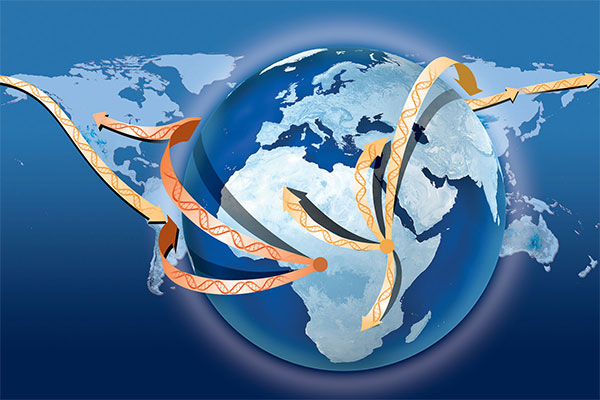
NHGRI places a high value on the effective sharing of information about the Institute's work with researchers, educators, policymakers, and the public. Such sharing plays an integral role in strengthening research partnerships, informing policy, and educating society about genomic advances. A key element among these efforts is NHGRI's website, genome.gov. For the first time in 9 years, genome.gov is undergoing a complete redesign.
It is easy to marvel at how much genomics has changed in the last decade. Ten years ago, it cost ~$100,000 dollars to sequence a human genome; today, it costs ~$1,000. There has been an explosion in the public's interest in genomic applications, including Direct-to-Consumer genomic testing, ancestry profiling, DNA forensics, and genomic medicine. Likewise, the internet and digital communications have changed substantially over the same period of time. NHGRI's redesigned website will reflect the latest advances in web design, layout, and usability to highlight better the latest advances in genomics research.
The redesigned website aims to capture the viewer's imagination. With bold statements and large, vivid images, genome.gov's home page will be designed to quickly steer any visitor to the content that is most relevant to them. Deeper in the website, researchers will find information about funding, collaboration, and professional-development opportunities. Meanwhile, educators will find lesson plans, learn new ways to communicate with their students, and discover the latest community-involvement events. There is even a place for those who are new to genomics for learning some basics. Because there is something for everyone across a broad audience, the redesigned website will provide a launching pad for strong discourse among policymakers, the public, and researchers.
Today, websites are viewed in many ways. NHGRI's Communications and Public Liaison Branch is designing the new genome.gov site to work seamlessly on phones, tablets, and computers. This flexibility will bring the work of the Institute to new audiences. Everyone from the general public to research investigators will be able to access NHGRI with the tips of their fingers and in the front of their minds.
The redesigned website will also be designed with room to grow. It will be built with open source, flexible software that will provide freedom to adapt and modify the presentation of information to stay current with the fast-paced changes in genomics. It will further provide opportunities for NHGRI's web developers to participate in the open source development community, improving and evolving the website as new innovations arrive and showcasing NHGRI's work in cutting-edge ways.
The approach for redesigning genome.gov also directly embraces NHGRI's new mantra - The Forefront of Genomics. It will put the Institute's scientific breakthroughs in the spotlight in modern and engaging ways, serving to advance scientific partnerships, expand understanding about genomics research, communicate achievements to a broad audience, and further the goal of broadening society's understanding of genomics' role in human health and disease. Tune into genome.govin the coming weeks to see the redesigned website.
![]()






